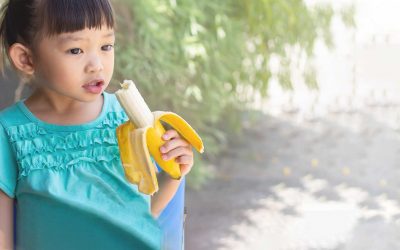Hopped Up On Sugar? How About Caffeine?
My kids want to try everything we eat and drink. I think most kids do. My husband drinks black, thick, concentrated coffee when he wakes up every morning. I drink a diluted green tea. My kids love both, much to our chagrin. They ask every day to try some and saying no is often a temper tantrum waiting to happen. Question is: is this bad for them? Certainly there is a difference between drinking a sip or drinking a cup or more, but really how bad is caffeine for kids?
Serious side effects such as high blood pressure, arrhythmias and seizures put youth at risk.
A much more common scenario for kids is drinking pop and energy drinks. According to the Canadian Paediatric Society, in 2006 30% of adolescence reported using energy drinks. Caffeine metabolism slows during adolescence due to the natural surge of growth hormone, and side effects are more likely. Serious side effects such as high blood pressure, arrhythmias and seizures put youth at risk.
As a result of the risks, Canadian guidelines recommend that kids get no more than 45 milligrams of caffeine a day. This is the amount of caffeine found in a 355 ml can of soda. Maximum.
Canadian guidelines recommend that kids get no more than 45 milligrams of caffeine a day
What is caffeine?
Caffeine is a stimulant that is natural occurring and can be artificially made as well. It is a DRUG as it stimulates the central nervous system (i.e. the brain).
Caffeine related symptoms
At low levels people experience energy and alertness. However, in excessive amounts caffeine can cause:
- Nervousness
- Headaches
- Palpitations
- Abdominal pain, nausea, vomiting and diarrhea
- Difficulty sleeping
- Decreased concentration
- High heart rate and blood pressure
Don’t worry too much about an occasional slice of chocolate cake or hot chocolate.
Small kids don’t require much caffeine to experience side effects. Even a few sips can do it. Don’t worry too much about an occasional slice of chocolate cake or hot chocolate. Though chocolate does contain caffeine it isn’t usually enough to cause caffeine-related symptoms. Moderation is the key.
Link to obesity
Caffeinated drinks usually contain sugar. Pop and energy drinks contain lots of sugar. Excessive sugar intake increases the risk of obesity. Kids that drink 355 ml of pop a day are 60% more likely to be obese!
If your child is drinking empty calories in pop, he or she is missing nutrients and vitamins from other healthier foods. This puts your child at risk of nutritional deficiencies, most commonly iron and calcium deficiency. Iron makes you smarter, and calcium makes your bones stronger. Want them missing this?
Dehydration
Caffeine acts as a diuretic, causing the body to eliminate fluids. Even though a caffeinated beverage is liquid, it may actually contribute to dehydration. Best to avoid excessive caffeine ingestion on warm days or when active to avoid dehydration.
Cavities
Drinking sweetened, caffeinated beverages dramatically increases the risk of dental caries. A regular pop has 10 teaspoons of sugar!
How to cut back
Caffeine addiction is a real thing. Your brain quickly becomes accustomed to caffeine stimulation. Caffeine withdrawal can happen. If you feel your child’s caffeine consumption is excessive, or yours is, please reduce your intake slowly. If you cut back too quickly you can experience depression, headaches, irritability and nausea.
For healthier options check out our smoothie ideas.










